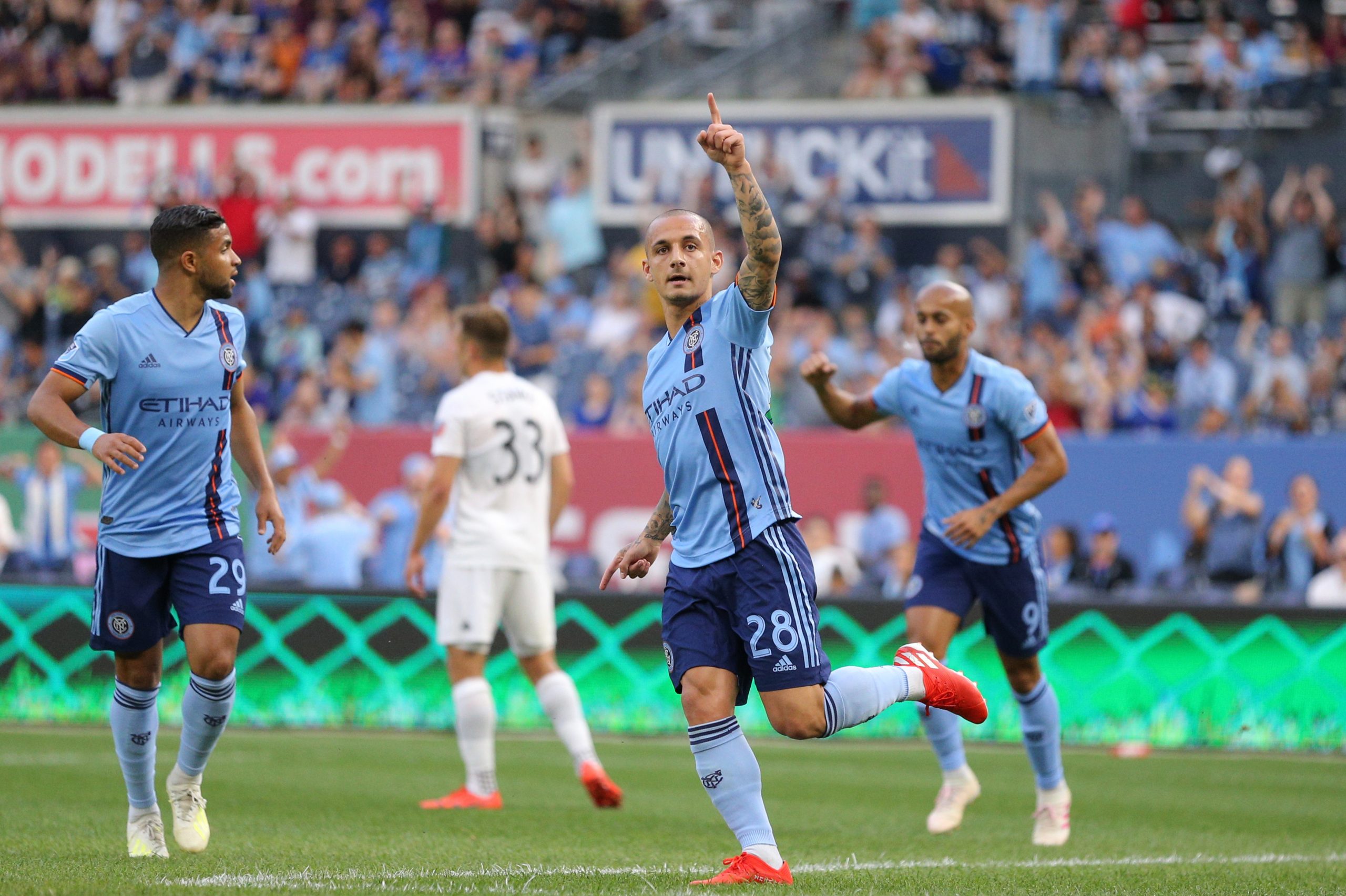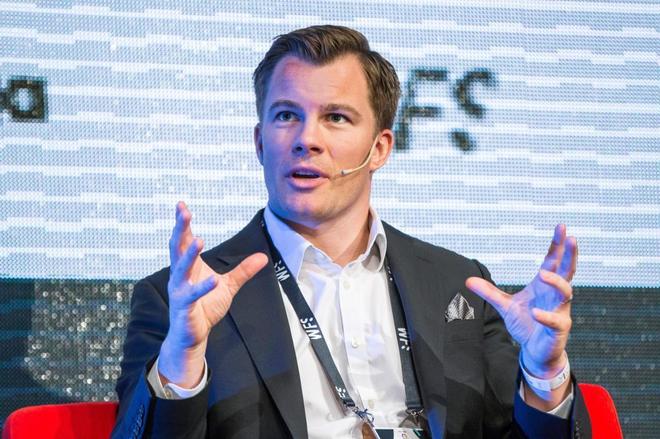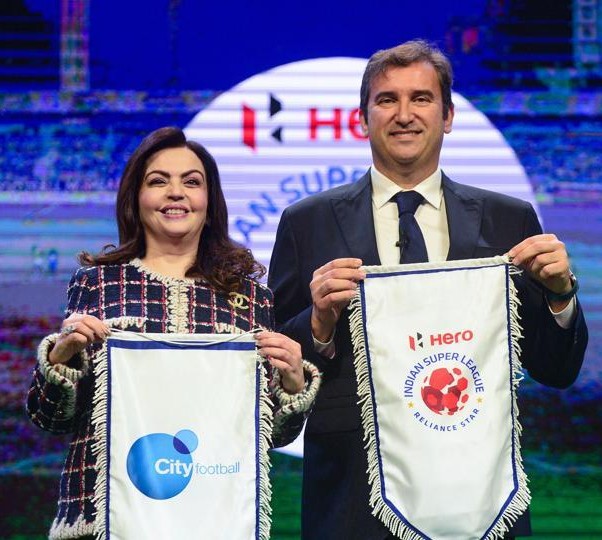By Euan McTear
Not only have more and more investors decided to purchase a majority share in a football club over recent years, but there is an increasing number of investors who have taken over multiple football clubs. This multi-ownership strategy is increasingly popular, but what are the benefits of this? And are there any downsides?
Perhaps the most high-profile example is that of City Football Group, who added Mumbai City FC to their portfolio in November to mean they now have eight teams in the group. The others are Manchester City FC (England), New York City FC (USA), Melbourne City FC (Australia), Yokohama F. Marinos (Japan), Club Atlético Torque (Uruguay), Girona FC (Spain) and Sichuan Jiuniu FC (China). In total, City Football Group is now valued at £3.73billion.

Don Dransfield is the Director of Operations Development at City Football Group and he explained the value of having a presence in multiple countries and leagues at World Football Summit 2017, when City Football Group had six clubs in the portfolio. “Our strategy very much is to look at the underlying synergies and network benefits that result from being able to operate both across multiple geographies and across multiple elements of the value chain within each of those geographies,” he told the audience in Madrid. “In very practical terms, what that means from a footballing perspective is it means we’re able to have more scouts in more places who are watching more games of more players and collecting better data and information to allow us to be able to make better investment decisions on those players.”
One case study of this working well is that of Australia international Aaron Mooy, purchased by Melbourne City FC from Western Sydney Wanderers in 2014. As Dransfield explained, the City Football Group ecosystem worked well on this occasion: “There’s a great example of a player who we signed called Aaron Mooy, who went to play for Melbourne City FC. He was then signed by Manchester City FC, who were made aware of this player because of our relationship through Melbourne City FC. He went on loan to Huddersfield and was subsequently a player who, public sources say, we sold for £10m this season.”
«We’re able to have more scouts in more places who are watching more games of more players and collecting better data and information to allow us to be able to make better investment decisions on those players», Don Dransfield- Director of Operations Development (City Football Group)
There are other examples where the unique relationships between the clubs in different leagues has worked to the benefit of the entire group and to the benefit of the players themselves. In the past decade, there have been 25 ‘internal’ transfers (4 with New York City FC, 7 with Melbourne City FC and 14 with Girona FC), whether loans or permanent deals, between Manchester City FC’s senior squad and the other entities in the City Football Group. In many cases, such as those of Pablo Maffeo, Aleix García, Jack Harrison or Luke Brattan, these switches really aided the player as they allowed them to move back to and develop at a club in their native country.

From a business point of view, there are many benefits to having partners in other countries and continents. “We see every additional acquisition as adding more to the group than just the individual sum of the parts of each incremental acquisition,” Dransfield said at World Football Summit. “The incremental benefit of adding each additional entity, be it another club or another business, is very much 1+1=3. There are also some more nuanced benefits to scale. From a commercial perspective, we have more assets across more time zones which means that we’re able to better serve our partners. Finally, but most importantly for our fans, it means that we have a greater volume and better quality of interaction with our fans because we’re able to have multiple assets.”
City Football Group isn’t the only such group in world football. ENIC Group had stakes in Tottenham Hotspur (England), Rangers (Scotland), Slavia Prague (Czech Republic), AEK Athens (Greece), Vicenza Calcio (Italy) and FC Basel (Switzerland) around the turn of the century. Atlético Madrid’s owners also purchased stakes in ATK (India), RC Lens (France) and Atlético San Luis (Mexico). The Pozzo family owned Udinese (Italy), Watford (England) and Granada (Spain) until as recently as 2016, at which point they sold the stake in Granada. And Red Bull currently own Red Bull Salzburg (Austria), RB Leipzig (Germany), New York Red Bulls (USA) and Red Bull Brazil (Brazil).
“We see every additional acquisition as adding more to the group than just the individual sum of the parts of each incremental acquisition”, Don Dransfield- Director of Operations Development (City Football Group)
Along with the advantages outlined above, there can be disadvantages too. There are laws to prevent multi-ownership in the same leagues and this can create conflicts when clubs from the same ownership groups both enter continental competition, as was the case with Red Bull’s Leipzig and Salzburg franchises recently. It required a lot of legal jostling, but eventually their joint-participation in the UEFA competition was found not to have breached Article 5, and they even faced off in the 2018/19 Europa League.
Then there’s the cautionary tale of Granada’s relegation from Spain’s top division in the 2016/17 season. The club had embraced a culture of signing loan players, driven by the multiple transactions completed with sister clubs Watford and Udinese, and this ultimately contributed to their 20th placed finish. In 2016/17, they had 17 summer signings and 13 of these were loanees, who didn’t have the same motivation to keep the club they were leaving in 12 months up. As Andreas Pereira, one of those loanees, said in an interview with The Guardian: “It is difficult for a club like Granada: a lot of loan players, a lot of nationalities, a language barrier at first. We try to be a team, even though I know I am going to leave.”
The concept of relegation is problematic to such projects, as there are no guarantees that all entities in a portfolio will still be competing in the same division in five years’ time. The prospect of promotion, on the other hand, can lure some investors into making risky bets on certain clubs. Dransfield admits that City Football Group were “super lucky” when purchasing Girona FC, who won promotion to the top division of Spanish football in 2016/17, but warns against banking on such a development. “You absolutely should not make an investment decision assuming that you’re going to get promoted, because that is the quickest way to being unsuccessful as an investor in football,” he warned the attendees at World Football Summit 2017.

